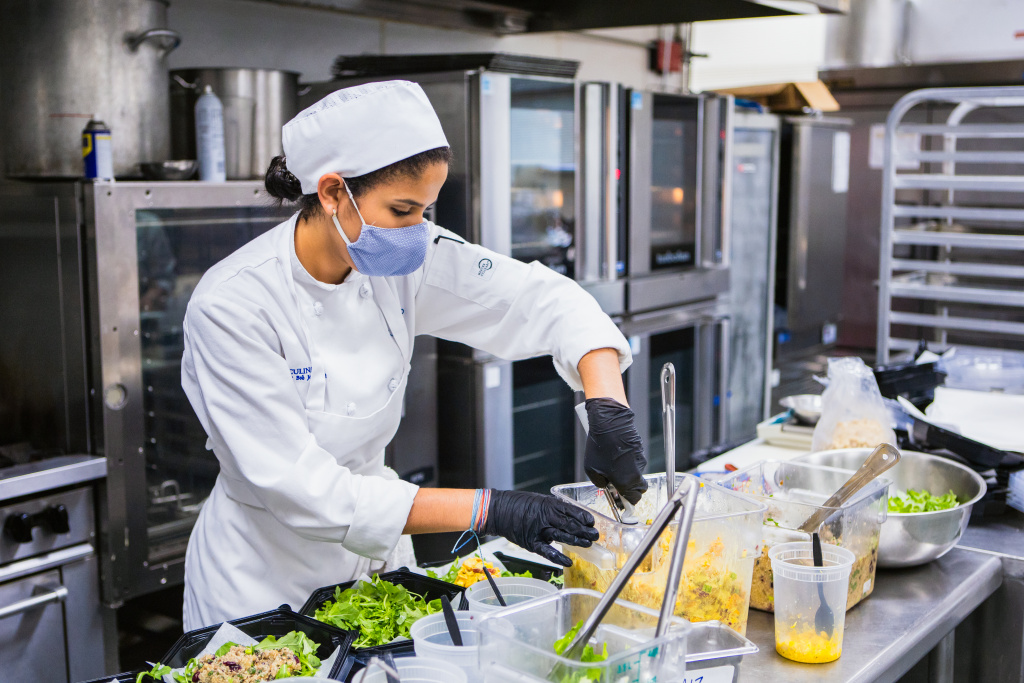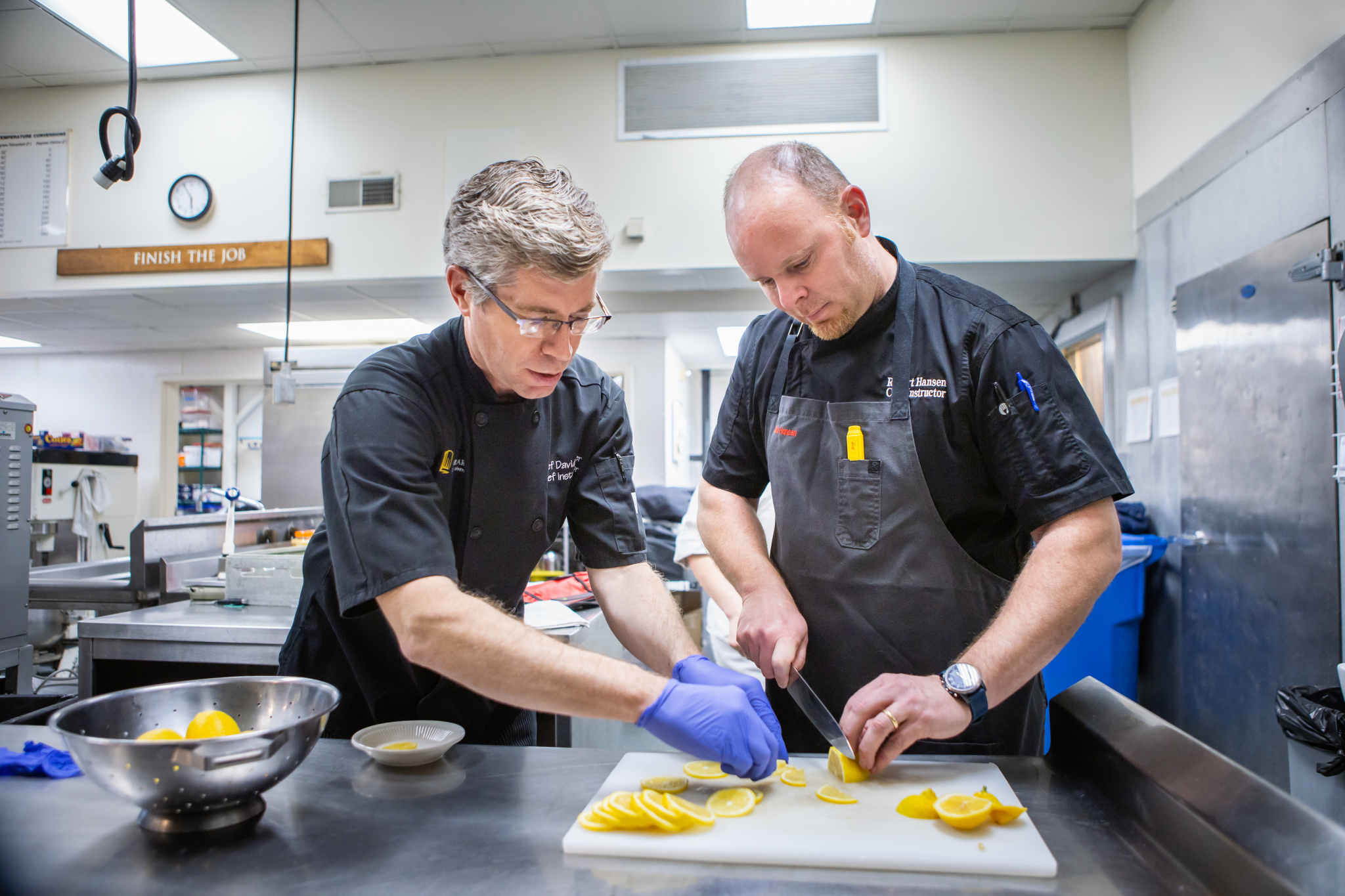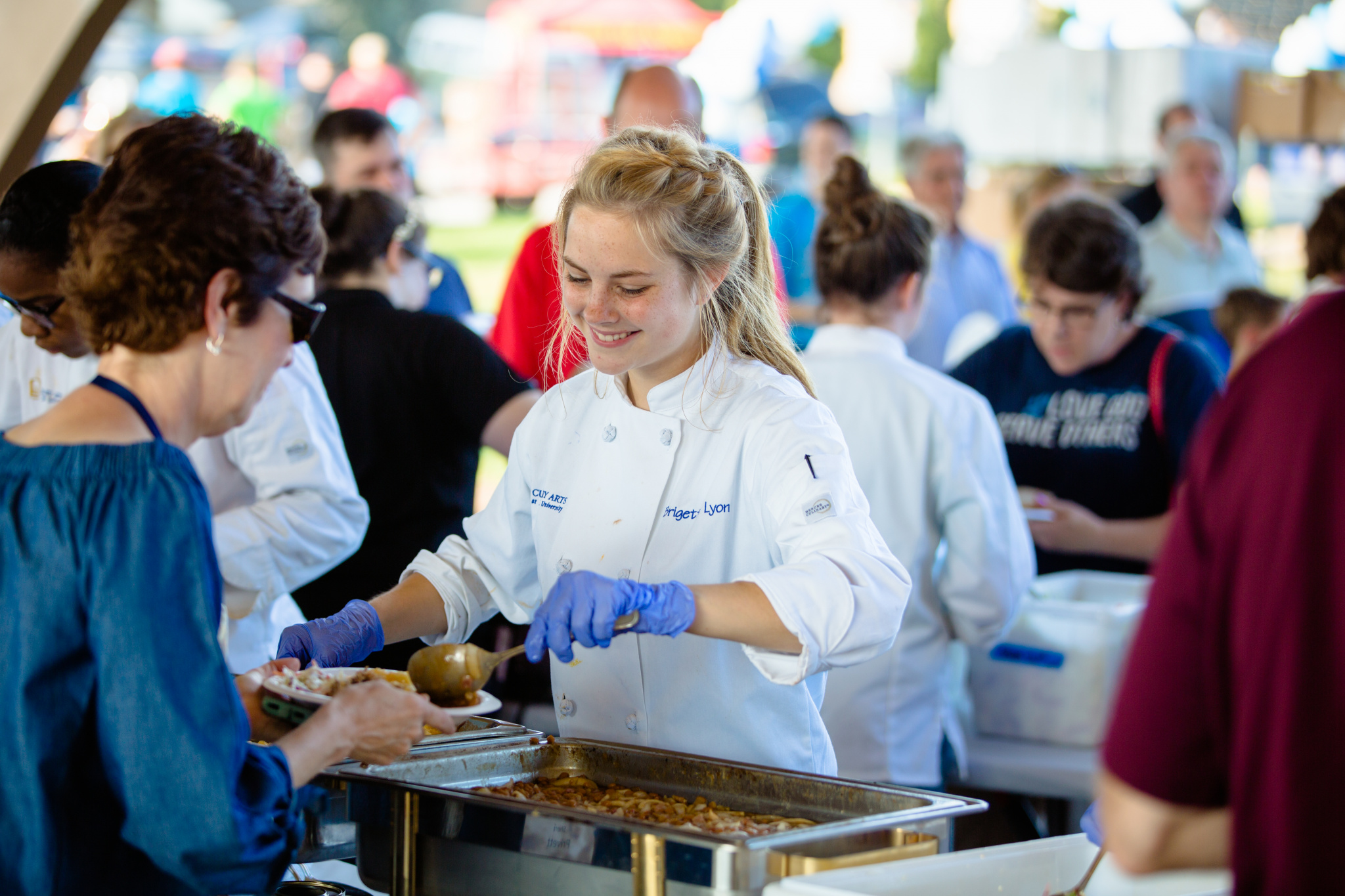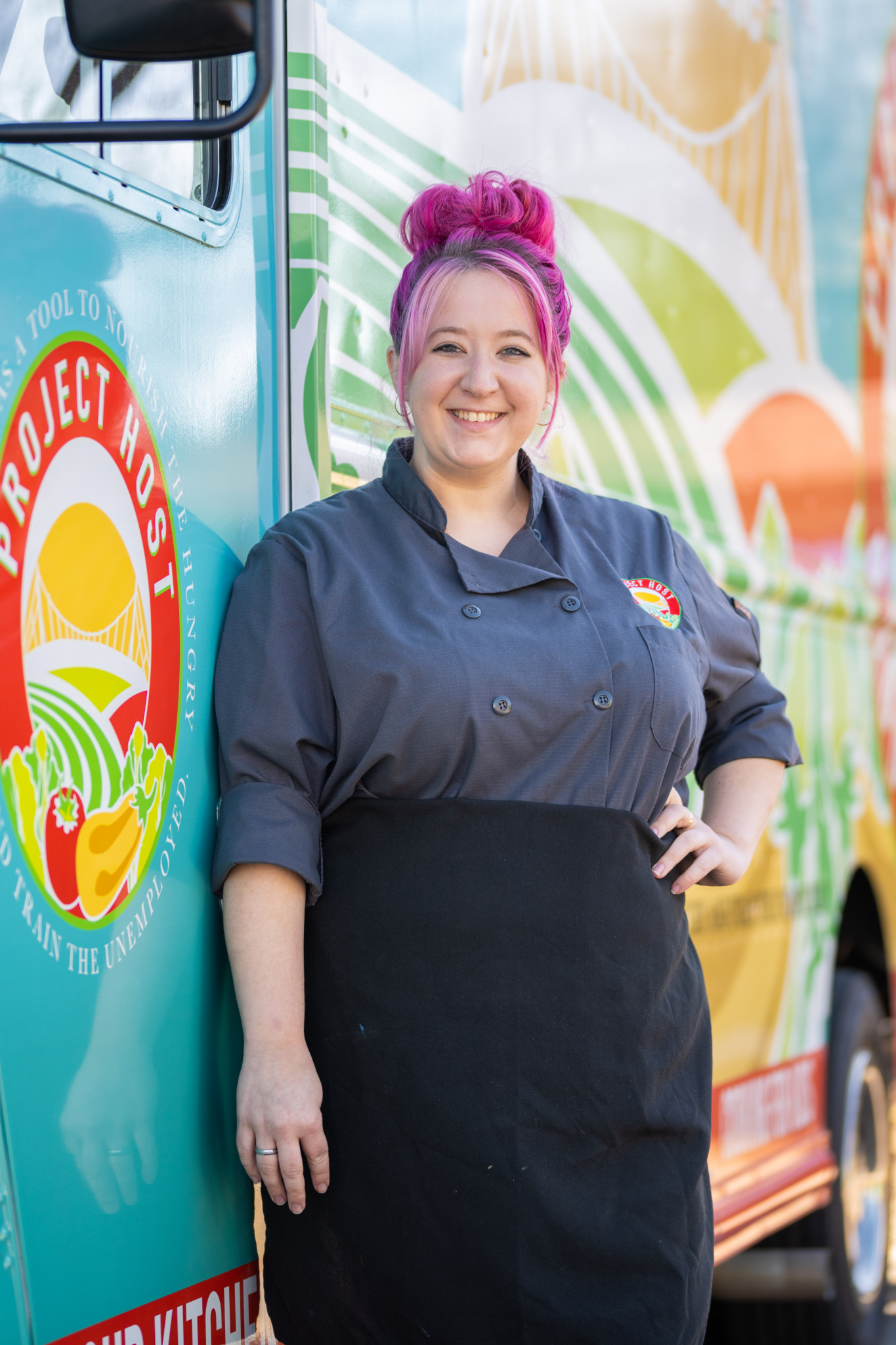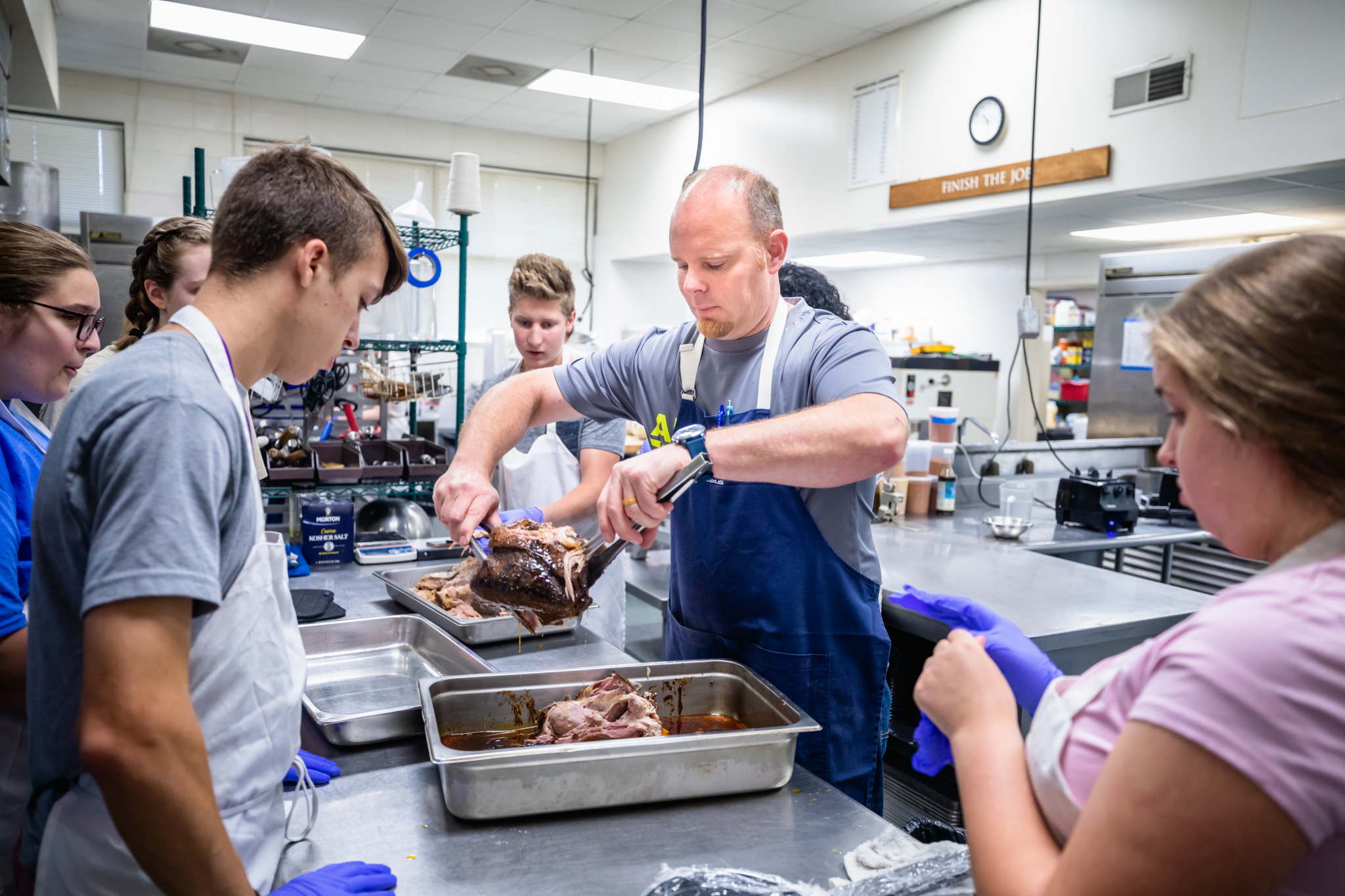Have you ever wanted to learn about food preparation, food presentation and restaurant management from a Christian point of view? BJU is one of the few Christian liberal arts universities that offers a culinary arts program.
As a culinary arts student, you will spend your two years developing an array of skills that will help you navigate the food industry with a biblical worldview.
“God has given you an opportunity to be His tool in the food service industry. So as you go out and become a missionary for the food service industry, you have an opportunity that your church, your pastor is not going to have,” said Rob Hansen, program head for the culinary arts program.
What Faculty Will I Meet?
As a part of the program, you will have most of your classes with Hansen and David Miller.
Hansen has been an executive chef in the Greenville area for the past 20 years. He has been teaching students the foundations of cooking and professional food service for 19 years.
See Also: Faculty Spotlight: Rob Hansen
Miller, on the other hand, has a background in baking and teaches the management and introductory baking classes. While Hansen and Miller have different backgrounds, their skills and experience help them give students a well-rounded education.
“The two of us have two different backgrounds and outlooks on food service. So it really gives a balanced approach to helping students understand, ‘Am I going to be a chef, or am I going to be a baker?’ ” Hansen said. “I think overall they’re going to get a great balance from just the two of us.”
What Will You Learn?
Your classes will focus on three major aspects: food service, hospitality and restaurant management.
Food Service
One of the first classes you take is Cooking Methods. Whether you have previous cooking experience or not, this class will teach you the basic foundational cooking skills.
“I don’t make assumptions about what you know. Somebody may come in with no background at all in cooking. I prepare them by teaching them the foundational cooking skills they will need to know. If you already have some experience, we’re going to build upon what you already know,” Hansen said.
During your second year, you will take a fine dining class in which you will prepare and serve a six-course meal for real customers. You will also take a practicum class in which you will organize, host and prepare food for a bistro in a small restaurant setting on campus.
Hospitality
Each semester, you will be able to use the skills you have learned to participate in catering and fine dining opportunities. “Throughout the year, we participate in events and cater to the University or Alumni Association. Our goal is to give students experiences that are educationally beneficial,” Hansen said.
During each event you participate in, you will be responsible for preparing the food and serving the guests. “We like to give students the experience of not only preparing the food but of actually serving the guests. We want to teach them the principle of good hospitality which involves kindness and respect,” Hansen said.
Management
While your classes will involve a lot of cooking, be prepared to learn about the management and financial side of the food industry as well. Hansen and Miller will prepare you for a job in the field, whether front of the house or back of the house.
One of Hansen’s favorite classes to teach is Cost Controls. In this class, you will develop a restaurant idea, a menu and recipes. Miller teaches a class in which you create a policy manual for your restaurant idea. “We want students to understand the food industry from every side and aspect. By the time they finish, we want them to be able to work any kind of job in the food industry,” said Hansen.
What Other Classes Can I Take?
The culinary arts program is an associate degree. Your two years will include the BJU Core — classes that include speech, economics and Bible.
But you are encouraged to take extra classes beyond the degree program. “Students are welcome and encouraged to take classes outside of their culinary ones. We have many students that go on to pursue a bachelor’s degree in different fields,” Hansen said.
One of the most popular bachelor’s degrees for culinary students is business administration. “I think it makes a lot of sense to develop the business side of the food service industry. So if a student is wanting to take some extra business classes along the way that could be really helpful for their future,” Hansen said.
Several culinary students have also taken classes relating to nutrition and health sciences. “I’m seeing a lot of students with interest in more of the nutrition side. So getting into health science and nutrition could be a good choice, specifically nutrition because it has just so many opportunities. I think they would go together well,” Hansen said.
What Requirements Will I Have?
You will complete several projects throughout the program. One of the highlights of each semester is the wedding cake project. You will bake and decorate a wedding cake for a grade and then offer slices to friends or give the cake away.
Between your two years, you will be required to do an internship in a full-service restaurant. Most students intern in a local restaurant as a line cook, prep cook or sous chef.
“The internship gets them into the doors of a restaurant and that restaurant will now be aware of them. You might have a job after graduation, and if not it will help you understand what you do and don’t want to do after graduation,” Hansen said.
What Could the Future Hold?
Alumni that have graduated from BJU go on to work in fine dining, catering or baking. Others work toward a bachelor’s degree in a program that relates to culinary arts. Many alumni have become executive chefs or run their own restaurants.
See Also: Around Greenville: Tour of Culinary Arts Alumni
After graduating from BJU, you will be prepared to be a source of truth and light in the food industry. Hansen believes that the most important aspect of life after graduation is applying the principles that you were taught during your education.
“We’re not just teaching you to be a great chef, we want to train you to be qualified so that you can be a missionary to the food service industry. Our hope is that you can take everything you learned, both the biblical and culinary skills, and apply it to real-life circumstances,” Hansen said.
Is Culinary Right for You?
If you are interested in culinary arts, come to a culinary EDUcamp where you will learn about basic cooking skills, the importance of fresh ingredients, and how to make food from scratch.
“Culinary camp is a great way for people to get a feel for what we do and see what we’re about. We’ve got several students in the freshman class right now that came to camp when they were younger,” Hansen said.
During your week at EDUcamp, you will have the chance to see and use the kitchen the culinary arts students use during their time at BJU.
“It’s one thing to have a lab where you practice what it would be like if you were really doing this in a kitchen. But here, you’re actually doing it. We are cooking food and you’re going to eat it, or we’re going to serve it to someone else who’s going to eat it,” Hansen said.
Students who graduate from BJU’s culinary arts program are equipped to shine as lights in the food industry. Said Hansen: “You are the one that is there in front of them. You are the one that’s going to be sharing the Gospel with them. So the uniqueness of our program is that we are training you to be qualified so that you can be a missionary to the food service industry.”
For more information or to apply online, visit BJU’s culinary arts program page.


